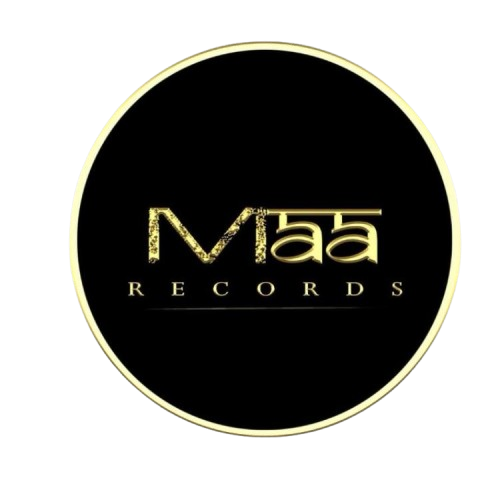Top Reasons Record Labels Reject Demos (And How to Avoid It)
What Independent Artists Should Know Before Sending Their Music
Every musician dreams of that moment when a record label listens to his demo and says, “Let’s sign you.” But many never get to that moment—not because they are not talented enough but because the demo never gets worthy attention. In fact, they get rejected right away; many demos are never opened in the first place. Why?

At Maa Records, a label working with independent artists across India and the UK, hundreds of submissions come our way. While some stand out, others fall into simple pitfalls. This blog outlines the top reasons behind demo rejection at record labels and more importantly, how to avoid making these mistakes that could prove vital for your chances of being signed.
1.soft sound
Problem: A poorly mixed mix, bad vocals, or simply a bad recording will render any song unlistenable. Labels expect demos to be a bit clear and a bit polished.
Solution: Set up a basic home studio or rent studio time.
Use free or low-cost DAWs like Audacity, BandLab, or Reaper.
Get your mix professionally mixed and mastered if you can.
At Maa Records, we offer affordable studio services and help new artists every step of the way in production so that their demos can really shine.
2. Lack of Distinctive Artistic Identity
‘The Problem. Labels are looking for singers. very good singers. They’re looking for artists who have a voice and an art style. It really goes down to the kind of music that blends so well into the general mix. If it sounds like all the rest, it won’t be any different.’
How to Avoid It: Understand your genre, audience, and image.
Realize and bring into your music those elements that echo your personal sound, rather than just following the trends.
Add a short biography or EPK (Electronic Press Kit) that defines you as an artist.
Maa Records helps the artists in building their brand identity so that they can confidently approach those in the industry.
3. Half-finished entries
The Problem:
Mailing only an MP3 file without context is one of the most common mistakes. Labels receive hundreds of emails, and without substantial information, your demo gets probably skipped over.
How to Avoid It:
Always include:
Your name/stage name
A short artist bio
Links to social media or music platforms
One or two high-quality tracks
A clear subject line (for example, “Demo Submission – [Your Name]”)
Tip: Never send large attachments. Always use a streaming link instead (SoundCloud, private link on YouTube, Dropbox, etc.).
4. Sending the Wrong Genre
The Problem:
You submit a heavy metal track to a label known for pop or Indian classical music, which simply betrays your utter negligence and ignorance.
How to Avoid It:
Look at the artists and their existing releases on the label.
Follow up on their submission guideline.
Only send music that matches their style.
At Maa Records, we are into all things independent vocally that include singer-songwriters and Indian fusion artists. We for sure love demos that fall under these categories.
5. Generalized E-Mails or Mass Submissions
The Issue:
One of the very things – copy-pasted emails, sending same message to 50 labels – screams-unprofessional. This shows the time taken is not spent thinking about the company.
How to Avoid It:
Personalize your email.
Give a reason why you are interested in that specific label.
Mention an artist you may have heard of that has been a part of that label’s roster or like a release you may admire.
6. Lyrics Dull or Maybe Song Structure
The Trouble:
Even if you sing very well, flat lyrics or poorly structured songs can ruin the impact. Labels want you to hear ideas that have taken their shape from rough sketches, not those that are still unfinished.
How to Avert It:
Learn what makes a popular song work in your genre, and how to write a verse-chorus-bridge format.
Avoid cliches and write only from your experience.
Ask for feedback from peer musicians or vocal coaches.
Here at Maa Records India, we offer songwriting sessions and mentorship for new artists in honing that songwriting talent.
7. No Social Media or Online Presence
The Problem: In this industry, labels greatly appreciate the fact that the artist has any fan base, even if it would be only a handful. No online music, or inactive profiles, become a red light.
How to Avoid It:
Keep looking active on Instagram, YouTube, and even Spotify.
Connect with fans and fellow artists.
Keep uploading covers, occasional behind-the-scenes, and music previews.
Maa Records helps artists create strategies for content to earn real engagement-incredible stuff to label.
8. Overconfidence or unprofessional attitude
The problem:
In reality, being an arrogant bragging individual would look very ridiculous to a label when you say “I am the next big thing”. Confidence is good, but humility and professionalism matter more-they don’t pay you for confidence.
How to Avoid It:
Be respectful and concise.
This is about music, not ego.
Thank the label for their time, whether or not they respond.
Conclusion: Distinguish Yourself by Being Intelligent, Rather than making Noise.
A great demo would allow one to enter the door to the music industry, but it’s not just the song; it’s how you pitch your music, your identity and your potential.
At Maa Records, we welcome only the best new, dedicated talents. So if you want to take the next step, make sure your demo reflects not just the voice but the vision.
📩 Submit demo to Maa Records India or UK: Visit www.maarecords.com and follow the submission guidelines to your future fans waiting.
